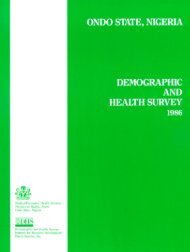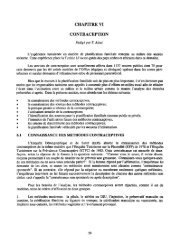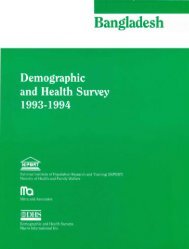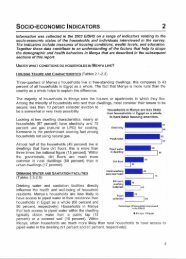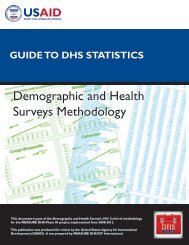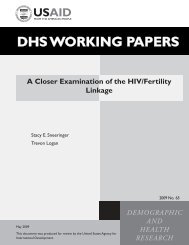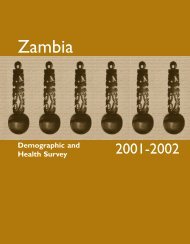Tanzania HIV/AIDS and Malaria Indicator Survey ... - Measure DHS
Tanzania HIV/AIDS and Malaria Indicator Survey ... - Measure DHS
Tanzania HIV/AIDS and Malaria Indicator Survey ... - Measure DHS
- No tags were found...
You also want an ePaper? Increase the reach of your titles
YUMPU automatically turns print PDFs into web optimized ePapers that Google loves.
YOUTH AND <strong>HIV</strong>/<strong>AIDS</strong> 88.1 INTRODUCTIONThis chapter addresses sexual behaviour among women <strong>and</strong> men age 15-24. <strong>HIV</strong> is mainlytransmitted through sexual contact <strong>and</strong> is influenced by risky behaviour. Special attention is paid tothis age group because it accounts for half of all new infections worldwide.Findings on issues such as <strong>HIV</strong>/<strong>AIDS</strong>-related knowledge among youths, abstinence, age atfirst sex, <strong>and</strong> age differences between partners are covered in this chapter. In addition, sex associatedwith alcohol use, knowledge of sources of condoms, <strong>and</strong> condom use at first sex are also presented.Condom use plays an important role in the prevention of <strong>HIV</strong>/<strong>AIDS</strong> <strong>and</strong> other sexually transmittedinfections.8.2 <strong>HIV</strong>/<strong>AIDS</strong>-RELATED KNOWLEDGE AMONG YOUTHCorrect knowledge of how <strong>HIV</strong> is transmitted enables people to protect themselves fromcontracting the virus. Avoiding <strong>HIV</strong> is critically important for youth, who are often at greater riskbecause they may have multiple partners or engage in more risky sexual behaviours. In the 2007-08THMIS, young respondents were asked the same set of questions on knowledge <strong>and</strong> beliefs about<strong>HIV</strong> transmission as older respondents.Data in Table 8.1 show the level of comprehensive knowledge among youth, namely, theproportion who, in response to a prompted question, agree that people can reduce their chances ofgetting the <strong>HIV</strong> infection by having sex with only one uninfected, faithful partner <strong>and</strong> by usingcondoms consistently; who know that a healthy-looking person can have <strong>HIV</strong>; <strong>and</strong> who know that<strong>HIV</strong> cannot be transmitted by mosquito bites or by sharing food with a person who has <strong>AIDS</strong>.Thirty-nine percent of women age 15-24, <strong>and</strong> 42 percent of men age 15-24 in <strong>Tanzania</strong> havecomprehensive knowledge about <strong>AIDS</strong>. This knowledge is higher among youth in urban areas than inrural areas. The knowledge increases with increasing level of education <strong>and</strong> wealth quintile. Forexample, 21 percent of women with no education have comprehensive knowledge about <strong>AIDS</strong>compared with 59 percent of women with secondary or higher education.Across the country, comprehensive knowledge of <strong>AIDS</strong> for women is highest in the Eastern,Northern <strong>and</strong> Southern zones (45 percent or higher), while for men the knowledge is highest in theSouthern, Eastern, <strong>and</strong> Central zones (also above 45 percent). On the other h<strong>and</strong>, young women inRukwa <strong>and</strong> young men in Iringa have the lowest levels of comprehensive knowledge about <strong>AIDS</strong> in<strong>Tanzania</strong> Mainl<strong>and</strong> (16 <strong>and</strong> 28 percent, respectively).Knowledge of a source for condoms is higher among young men than young women (77 <strong>and</strong>59 percent, respectively). In general, knowledge of a condom source increases with age, educationlevel, <strong>and</strong> wealth status. For example, 48 percent of women with no education know where to obtaincondoms compared with 70 percent of women with secondary or higher education (Figure 8.1).Knowledge of a condom source is highest in Dar es Salaam <strong>and</strong> other urban areas, <strong>and</strong> it is higher inMainl<strong>and</strong> <strong>Tanzania</strong> than in Zanzibar. For women age 15-24, 61 percent in Mainl<strong>and</strong> <strong>Tanzania</strong> knowwhere to obtain condoms compared with 17 percent in Zanzibar.Youth <strong>and</strong> <strong>HIV</strong>/<strong>AIDS</strong> | 93



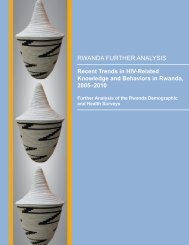
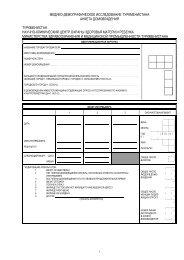
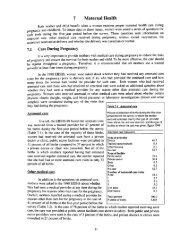

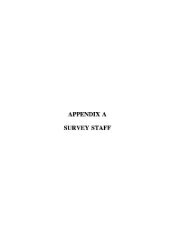
![Obtaining Informed Consent for HIV Testing [QRS4] - Measure DHS](https://img.yumpu.com/49850117/1/190x245/obtaining-informed-consent-for-hiv-testing-qrs4-measure-dhs.jpg?quality=85)
